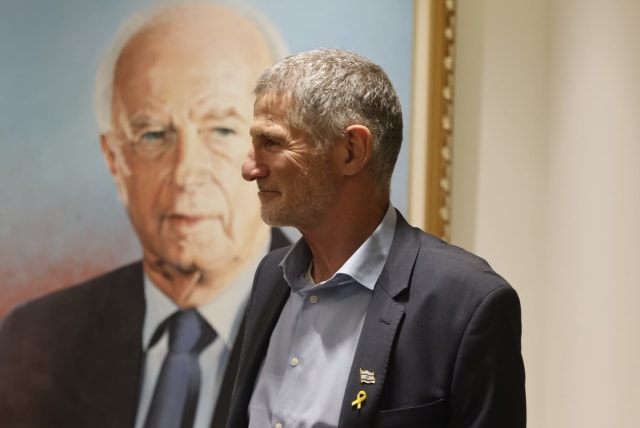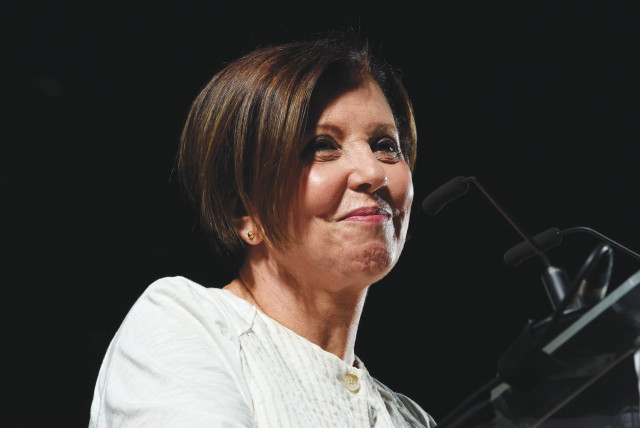If the Left wants a fighting chance in the next elections, they must unite - editorial

If there is anything the Israeli Left struggles to do, it is to unite behind a single leader. If they wish to succeed, Golan might be that person.
The names of Israel’s two leading left-wing political parties are pretty symbolic: Labor – labor, work, struggle; Meretz – vigor, energy, strength.
Those two expressions represent the Israeli Left to a T. It has been working tirelessly to dig itself out of the grave into which it fell during the last elections, when the Labor Party sank to new lows, and the Meretz Party fell below the electoral threshold.
At the same time, it has discovered a new strength and vigor, as though woken up from a slumber.
Rumors have begun to flitter around once more, suggesting that the two parties plan to form a united list once more should Israel go to what many in the country believe are unavoidable elections.
According to the most recent poll by Channel 12, Meretz would once more not pass the electoral threshold if Israel were to go to elections, and Labor would scrape by with four seats.
While the Center-Left bloc presents a significant force against the current right-wing leadership, it will face numerous hurdles if the leading representatives of the Left fail to regain their footing.
In the previous elections, Meretz and Labor famously decided to run separately after forming a united front in the prior elections. Based on rumors, this was blamed on Labor’s leader at the time, Meirav Michaeli, who reportedly had rejected an offer by Meretz to unite, under the impression that they would be stronger separately and both pass the electoral threshold. They would stand to gain three to four additional seats, she thought.
A merger would mitigate this risk, ensuring representation for left-wing constituents.
A united left
If the left-wing parties wish to have a fighting chance in the next elections and not be blamed for weakening the Center-Left’s hold on a majority government, they must unite.
Already, they have a good starting point: A former Meretz MK is now the head of Labor. He was also a massive front-runner who won by a record-setting landslide. Former deputy economy minister and IDF deputy chief of staff Yair Golan won with over 95% of the votes one month ago today, surpassing Avi Shaked, who had about 1.9%; Azi Nagar; and Azi Nagar and Itai Leshem, who both had less than 1%.
If there is anything the Israeli Left struggles to do, it is to unite behind a single leader. If they wish to succeed, Golan might be that person.
At first, he seemed to be attempting a rebranding for Labor, suggesting changing the historic party name to The Democrats, with a shiny new logo and everything. A rebrand just grazes the surface of the issues plaguing Israel’s left, however and it will not heal the scars that have, for quite some time, been fracturing the relationship between the varying left-wing parties.
There is no need to convince Meretz. The party knows quite well that if it does not unite with Labor, it may not – indeed, most probably will not – pass the electoral threshold.
Instead, unity is needed, and that is exactly where the parties seem to be headed. Over the past few weeks, sources close to the two parties have been leaking to Israeli media that a unity deal between Meretz and Labor is on the horizon and will come to fruition soon.
Labor even publicly said its central committee would soon convene to discuss varying issues, “including the union with the Meretz Party.”
A unified party could broaden its appeal by incorporating the strengths and popular policies of both Meretz and Labor, attracting a more comprehensive range of voters who support progressive and social-democratic ideals. They would be remiss not to take advantage of the opportunity.
Unifying Meretz and Labor could provide a revitalized, more vital, and more effective progressive force in Israeli politics, better positioned to advocate for their shared values and address contemporary challenges.
If they wish to have a fighting chance against Prime Minister Benjamin Netanyahu’s bloc – and, indeed, to have enough voices in a potential Center-Left coalition to advance their policies – the parties must unite and start campaigning early.
If they do not do so, they may be digging the grave of the Israeli Left.
Jerusalem Post Store
`; document.getElementById("linkPremium").innerHTML = cont; var divWithLink = document.getElementById("premium-link"); if (divWithLink !== null && divWithLink !== 'undefined') { divWithLink.style.border = "solid 1px #cb0f3e"; divWithLink.style.textAlign = "center"; divWithLink.style.marginBottom = "15px"; divWithLink.style.marginTop = "15px"; divWithLink.style.width = "100%"; divWithLink.style.backgroundColor = "#122952"; divWithLink.style.color = "#ffffff"; divWithLink.style.lineHeight = "1.5"; } } (function (v, i) { });

